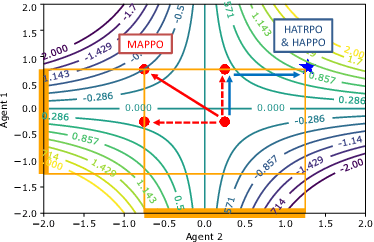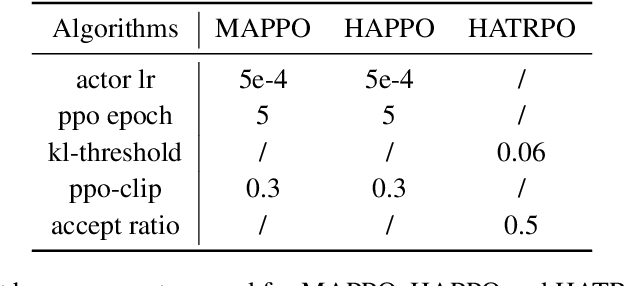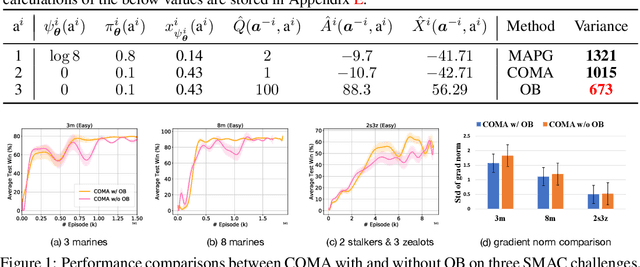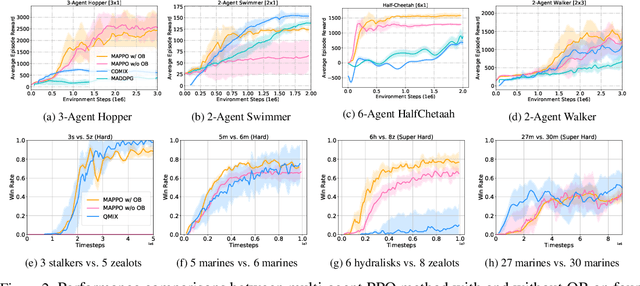Jakub Grudzien Kuba
Trust Region Policy Optimisation in Multi-Agent Reinforcement Learning
Sep 23, 2021



Abstract:Trust region methods rigorously enabled reinforcement learning (RL) agents to learn monotonically improving policies, leading to superior performance on a variety of tasks. Unfortunately, when it comes to multi-agent reinforcement learning (MARL), the property of monotonic improvement may not simply apply; this is because agents, even in cooperative games, could have conflicting directions of policy updates. As a result, achieving a guaranteed improvement on the joint policy where each agent acts individually remains an open challenge. In this paper, we extend the theory of trust region learning to MARL. Central to our findings are the multi-agent advantage decomposition lemma and the sequential policy update scheme. Based on these, we develop Heterogeneous-Agent Trust Region Policy Optimisation (HATPRO) and Heterogeneous-Agent Proximal Policy Optimisation (HAPPO) algorithms. Unlike many existing MARL algorithms, HATRPO/HAPPO do not need agents to share parameters, nor do they need any restrictive assumptions on decomposibility of the joint value function. Most importantly, we justify in theory the monotonic improvement property of HATRPO/HAPPO. We evaluate the proposed methods on a series of Multi-Agent MuJoCo and StarCraftII tasks. Results show that HATRPO and HAPPO significantly outperform strong baselines such as IPPO, MAPPO and MADDPG on all tested tasks, therefore establishing a new state of the art.
Settling the Variance of Multi-Agent Policy Gradients
Aug 20, 2021


Abstract:Policy gradient (PG) methods are popular reinforcement learning (RL) methods where a baseline is often applied to reduce the variance of gradient estimates. In multi-agent RL (MARL), although the PG theorem can be naturally extended, the effectiveness of multi-agent PG (MAPG) methods degrades as the variance of gradient estimates increases rapidly with the number of agents. In this paper, we offer a rigorous analysis of MAPG methods by, firstly, quantifying the contributions of the number of agents and agents' explorations to the variance of MAPG estimators. Based on this analysis, we derive the optimal baseline (OB) that achieves the minimal variance. In comparison to the OB, we measure the excess variance of existing MARL algorithms such as vanilla MAPG and COMA. Considering using deep neural networks, we also propose a surrogate version of OB, which can be seamlessly plugged into any existing PG methods in MARL. On benchmarks of Multi-Agent MuJoCo and StarCraft challenges, our OB technique effectively stabilises training and improves the performance of multi-agent PPO and COMA algorithms by a significant margin.
 Add to Chrome
Add to Chrome Add to Firefox
Add to Firefox Add to Edge
Add to Edge